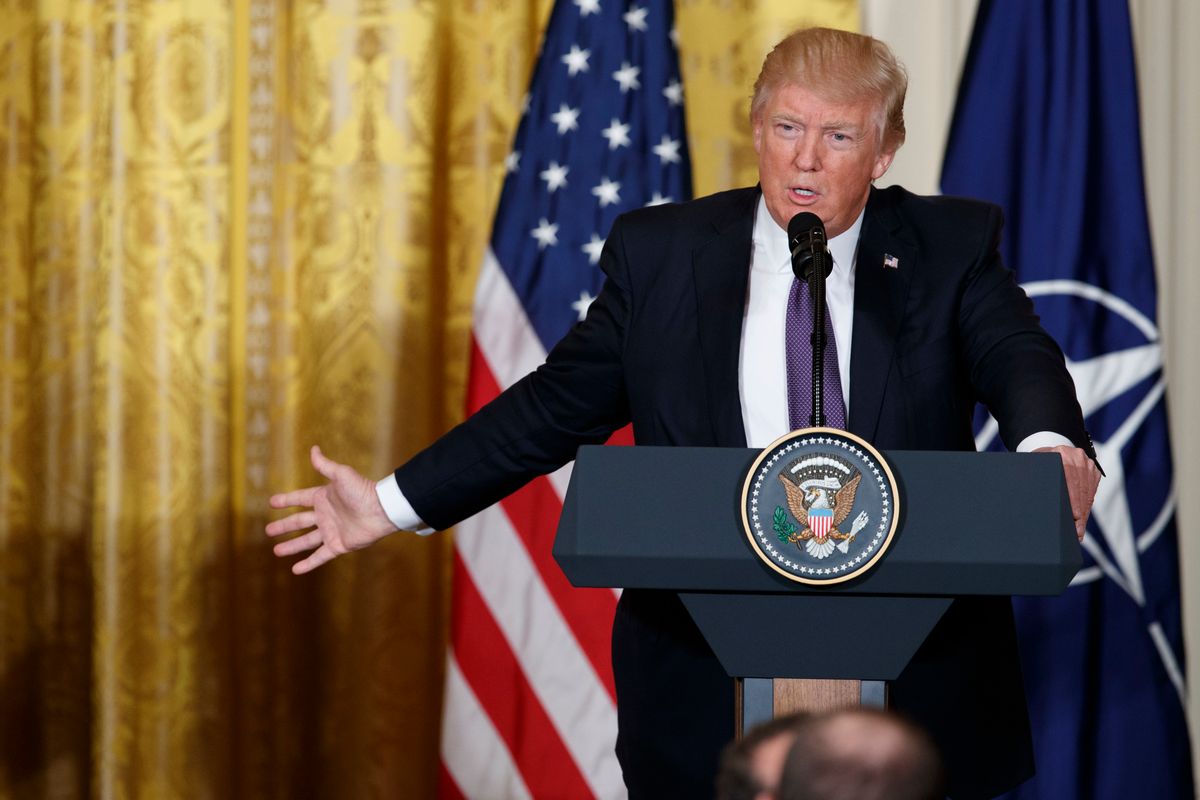Though it has now been five months since Donald Trump was elected president of the United States, the debate over how he won continues unabated. And if you ask a Democrat, chances are he or she will point to Russia and Vladimir Putin, FBI Director James Comey, fake news or maybe even the Green Party’s Jill Stein as the reason for Democratic nominee Hillary Clinton's downfall.
Not surprisingly, in an interview with New York Times columnist Nicholas Kristof
It was a perfect storm.
If fake news had somehow been eliminated from the web shortly before the election, or if Comey had opted not to make his ill-advised announcement (or, better yet, if Anthony Weiner had not sent illicit text messages to a 15-year old girl), and if Jill Stein had decided to drop out of the race in October, perhaps Trump would not be sitting in the White House today. Unfortunately, none of this happened, and one could go on forever discussing what-if scenarios. History is replete with what ifs, but only novelists and Orwellian propagandists can rewrite history, and at the end of the day the biggest what-if scenario for 2016 is whether Trump would have even had a shot at winning had he not been blessed with the perfect opponent in Hillary Clinton.
Even with the perfect storm of fake news, WikiLeaks and Jill Stein, it is unlikely that these factors would have been enough to tip the election to the reality-TV star's favor had he not been facing a candidate who played right into his populist rhetoric. As Trump campaign CEO and current chief strategist Steve Bannon put it shortly after the election, “Hillary Clinton was the perfect foil for Trump’s message."
"From her e-mail server, to her lavishly paid speeches to Wall Street bankers, to her FBI problems, she represented everything that middle-class Americans had had enough of,” Bannon explained.
In other words, Trump won because he was a populist candidate whose rival perfectly personified the Establishment. And the
Though this is, of course, yet another what-if scenario, but had the opposing candidate been an actual populist — like say, Sen. Bernie Sanders, who continues to rank as the most popular politician in America — there is good reason to believe that Trump would have been easily defeated last November. And for this reason progressives have pushed for the Democratic Party to embrace a populist tone in the “resistance” against Trump and the Republican Party.
Contrary to what many Beltway insiders continue to tell themselves, the current populist explosion is not a short-lived fad based on the irrational emotions of the unwashed masses. It is a legitimate revolt against an unjust and undemocratic system that serves the rich and powerful. Thus, the party that can offer a popular plan for reform — along with genuine populist candidates — will succeed in the future. And while Trump and the far right had the populist edge in 2016, progressives can easily gain the advantage in 2018 and 2020.
While Trump skillfully positioned himself as a populist candidate in 2016, he was never more than a demagogue peddling false promises, and demagoguery rarely translates into effective governing. That the president’s first months in office then have been mired by continual political setbacks and embarrassing policy failures is hardly surprising. And after almost three months of predictable failure, President Trump appears increasingly willing to discard populism completely.
Indeed, it has become clear over the past week that the Trump administration’s leading purveyor of right-wing populism, Steve Bannon, has become an isolated figure in the White House. On Tuesday after a week of reported infighting between Bannon and Trump’s son-in-law Jared Kushner, the president signaled that the chief strategist’s days may be numbered and downplayed his influence: “I like Steve, but you have to remember, he was not involved in my campaign until very late." Added Trump: "I'm my own strategist.”
This is bad news for the alt-right but potentially great news for progressives who hope to reclaim the title of populism from the right.
The disastrous first months of the Trump administration have already gone a long way toward discrediting right-wing populism altogether, and Trump’s embrace of Wall Street (almost all his top advisers are now Goldman Sachs alumni) and the GOP establishment creates a perfect opportunity for the left. Just as Hillary Clinton, with all her political baggage, was a perfect foil for candidate Trump, President Trump, with his Goldman Sachs government, could be the perfect foil for progressives and the Democratic Party.
That is if the Democrats can manage to unite around progressive candidates and a populist platform. And here, too, there is reason to be cautiously optimistic.
This week Bernie Sanders and the newly elected Democratic National Committee chair, Tom Perez, announced a tour in various swing states. Politico magazine also reported on Wednesday that Democratic leaders are currently formulating a broader economic agenda for 2018 that will be “populist,” with a greater focus on infrastructure and trade. This signals that Democratic Party leaders are starting to become serious about populism, though time will tell how serious they really are.



Shares